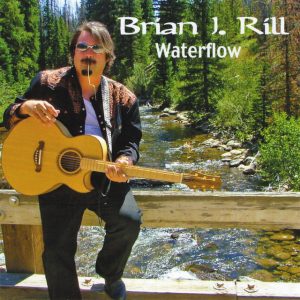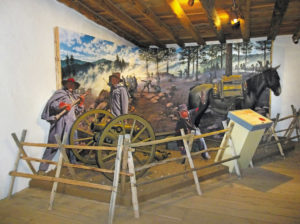By Peter Anderson
“How long are you going to be around?” my 13-year-old daughter asked Hester who was ringing up our groceries at the Mercantile. Some years ago, Hester, left town for a while after her husband died. More recently she returned and now has her old job back. Though I don’t know for sure – we are really only acquaintances – I think she went back to Montana to get a little family support, while her son, who had been pals with my older daughter, was making his way through high school. He’s doing well now, I learned, as I ran my credit card through the machine that I have never quite mastered. Credit? Debit? Slide? Insert? Graduated from high school, Hester’s son is apprenticed to an auto mechanic in Missoula who works on Fords, Chevies and Subarus. All good news. But it was her reply to Caroline’s question – how long she would be around – that really caught my attention. “For the rest of my life,” she said.
For the rest of my life. How many people can say that? How many people, even if they think they are homebodies, actually stay in a place? None of my relatives did. I come from a long line of wanderers. Southerners who moved north. Midwesterners who moved east. And, in my generation, easterners who came west. None of us have been buried where we were born.
An 83-year-old friend here, who is originally from Brooklyn, N.Y., recently had a heart attack. He loves this community and has devoted his time accordingly – starting a community theater group, working with others to create community housing for senior citizens, making weekly visits to an older friend whose health is more precarious. But today, over our weekly coffee, he said that he needed to move a little closer to good medical care. And to his daughter. If I were in his shoes, I would do the same. And I may well some day.
But for now, I plan to stay put. “Well, I might travel a little,” Hester said, and I surely will too, but like her, I have no plans for moving elsewhere. For one thing, moving is a bitch, even if it’s only across town. My friends and neighbors who are renting in this community, where housing is increasingly scarce and expensive, know that all too well. So having a home here is a great privilege.
[InContentAdTwo] But there is another dimension of being at home. Sometimes I ask new people in town, most of them much younger than I am (at age 61), if they think they might be “lifers” here. In many ways it is an unfair question. Although I took a vow to make the Upper Arkansas Valley my lifelong home shortly after I moved there in 1978, it was premature. My wandering days weren’t over. There would be other towns over the next few decades – Durango, Laramie, Moab, Salt Lake City and Mancos.
But the more transient our community becomes, and the more people I see come and go, the more I find myself asking the question. Around here, it is said that the mountain either takes you in or kicks you out, which is a shorthand way of saying, either you have what it takes to put up with the challenges of living in this remote small town or you don’t. The older I get, the more I want to hang with those who do.
Peter Anderson writes about geographical and cultural edges in this column and in a new collection of flash prose and prose poems called Heading Home: Field Notes published by Conundrum Press (conundrum-press.com)


